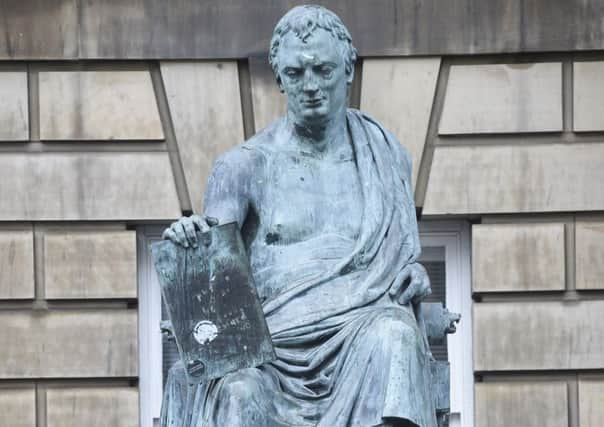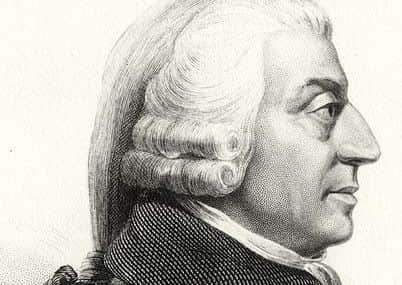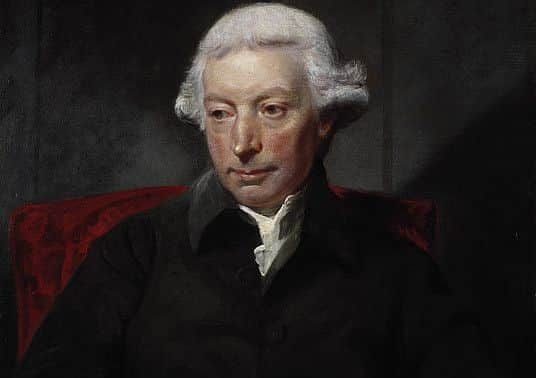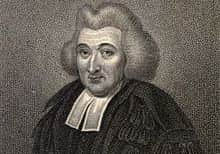Five Scottish philosophers who helped shape the world


ADAM SMITH, 1723-1790
Often referred to as the “father of capitalism”, Smith is most famous for his text The Wealth of Nations, where he details the guiding principles of political economy. Born in Kirkcaldy in 1723, Smith progressed to the University of Glasgow and then to Oxford by the time he was 17.
During his lectures at Edinburgh University in the late 1840s, Smith befriended fellow Scottish philosopher David Hume. His An Inquiry into the Nature and Causes of the Wealth of Nations is seen as the first work in the discipline of political economy.


Advertisement
Hide AdAdvertisement
Hide AdWith his ideas birthed from the beginnings of the Industrial Revolution, Smith urged that the ‘invisible hand’ of self-interest in free-market economies would have the greatest benefit for societies as a whole. Just three years before his death, Smith was named as Rector of the University of Glasgow.
GEORGE CAMPBELL, 1719-1796
Born in Aberdeen on Christmas Day, Campbell’s popular teachings were well-known during the Scottish Enlightenment, before falling out of favour shortly after the movement began to decline. Campbell learned from divinity lectures at the University of Edinburgh before returning to Aberdeen. The Granite City’s involvement in the Jacobite Uprising in 1745 meant that Campbell’s divinity studies did not conclude until 1746 - when he earned his licence to preach.
As a parish minister in Banchory, Campbell translated the Gospels from Greek into English and began to pen The Philosophy of Rhetoric, which he would not publish in its completed form until 1776. He would be one of the founding members of ‘The Wise Club’, or Aberdeen Philosophical Society, along with naturalist David Skene and medical scientist John Gregory.


Campbell’s The Philosophy of Rhetoric is memorable for its understanding of human nature as a result of scientific endeavour, and for being influenced by the ‘philosophical common sense’ of fellow intellectual Thomas Reid.
ADAM FERGUSON, 1723-1816
As a moralist, historian and philosopher, Adam Ferguson is often regarded as one of the earliest voices of Scottish sociological study. Born in Logierait, Perthshire, Ferguson was accepted into a divinity course at the University of St Andrews, but later abandoned the ministry after a stint as chaplain of the Black Watch Regiment.


During the late 1750s, Ferguson succeeded David Hume as the librarian at Edinburgh’s Advocates Library before becoming the chair of mental and moral philosophy at the institution. His teachings revolved around the idea that man is a social animal, conditioned by habit, culture and language to learn from past actions.
Ferguson also believed that civilised society bred the conditions necessary for war, such as a stratified social system and the professionalisation of the military. He was one of few philosophers to emphasise the ‘good’ that conflict could bring, such as advancements in science and better understanding of the human body.
HECTOR BOECE, 1465-1536
Advertisement
Hide AdAdvertisement
Hide AdOne of Scotland’s eldest fathers of philosophy, Hector Boece was born in Dundee and educated at the then-new University of St Andrews. He took on a professorship in philosophy at the University of Paris after leaving education,


In 1500, Boece left Paris for Aberdeen, where he was involved in the creation of the University of Aberdeen as its first Principal. His appointment allowed him to create the position of Regius Chair of Moral Philosophy; one which continues to this day at the university.
Asides from creating Scotland’s third medieval university and lecturing - oddly - in medicine and divinity, Boece’s other contribution to philosophy included Historia Gentis Scotorum (History of the Scottish People) - his most famous work until his death at the age of 71.
DAVID HUME, 1711-1776
David Hume ranks as one of Edinburgh’s most famous sons thanks to his tireless work during the Scottish Enlightenment. His works - which covered politics, economics and wider society - were pivotal in inspiring the younger Adam Smith to get involved with philosophy, while also being prescient of the modern age.
Hume’s ‘science of human nature’, based on observable fact and careful argument, featured ‘moral theory’ grounded in emotions and empathy. Such was the impact of his views that fellow philosopher Thomas Reid developed the ‘common sense’ school of thought to counter Hume’s views, highlighting the cross-cutting ability of philosophy to deal with societal issues such as economic or religious crises.


Towards the end of his career, Hume fell out spectacularly with fellow philosopher Jean-Jacques Rousseau, during his time as secretary to Lord Hertford in Paris in the early 1760s. He returned to Edinburgh in 1768, where he lived until his death.
